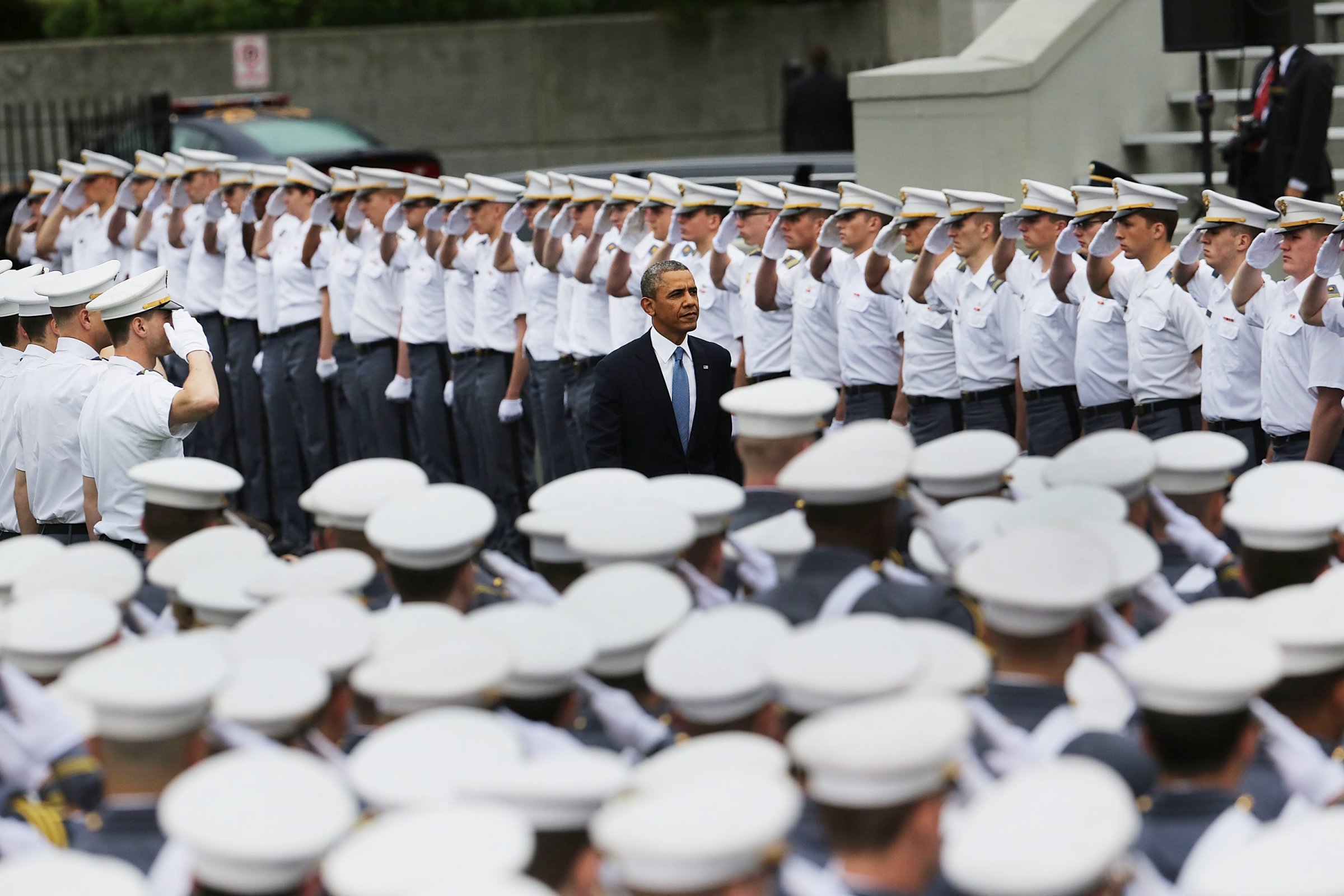
For all the hype, President Barack Obama’s foreign policy speech at West Point on Wednesday didn’t break much new ground.
As he has before, Obama warned against rash military action while reserving the option of unilateral force if necessary to defend America. He boasted about winding down the wars in Iraq and Afghanistan, a key theme of his reelection campaign. He argued that America is not in decline, as he did in his 2012 State of the Union address, and said the U.S. retains an essential global leadership role. America will sometimes enforce use force to defend its values and prevent suffering, he said, but only in partnership with allies and institutions—an echo of his 2011 speech explaining his Libya intervention. He bragged about decimating al-Qaeda’s leadership while warning about the group’s dangerous new affiliates, and promised to use drone strikes judiciously; those were the main themes of last year’s counterterrorism address at the National Defense University.
Yes, there was some modest news: a $5 billion fund to train regional allies in the Middle East and Africa to combat extremist groups, part of a sensible vision for action in partnership with local governments. Obama also pledged to “step up” support for Syria’s rebels, though he didn’t spell out what that might mean. A senior administration official who briefed reporters after the speech indicated that Obama might back a Senate provision to begin direct U.S. military training of moderate Syrian rebels (that is now handled by the CIA). But the official’s language was frustratingly opaque, prompting one reporter to complain that “I don’t think we’re getting a straight answer here.”
So, what did Obama accomplish at West Point? It’s hard to say. The White House billed the speech as a response to his growing legion of foreign policy critics. But it won’t satisfy many of them, particularly those who want aggressive U.S. action from Ukraine to Syria to terrorist hotspots like northern Africa. Those critics will welcome Obama’s assurances about American global leadership, but they’ve heard that song from him before and doubt that he truly means it.
Nor was there much reassurance for foreign allies from the Asia Pacific to Eastern Europe who are fretting over the strength of American security guarantees. Obama steered clear of anything that might resemble a red line against aggression by China, Russia or Iran towards their neighbors.
In recent days, some Obama officials worried that expectations for a speech never intended to set grand new policy had grown too high. They were probably right.
The speech may have served one important audience, however: Those Americans who, in a strange paradox, agree with Obama’s approach to most key foreign policy issues, but give him low marks overall for his stewardship of foreign affairs. For those with a vague sense of dissatisfaction over chaos in Syria and Ukraine, and other messy world problems, Obama’s address may remind them of things they can get happy about: wars ending, terrorists on the run, and optimism about America’s global role.
In that sense, what Obama offered Wednesday wasn’t a doctrine. It was a reality check.
More Must-Reads from TIME
- Cybersecurity Experts Are Sounding the Alarm on DOGE
- Meet the 2025 Women of the Year
- The Harsh Truth About Disability Inclusion
- Why Do More Young Adults Have Cancer?
- Colman Domingo Leads With Radical Love
- How to Get Better at Doing Things Alone
- Michelle Zauner Stares Down the Darkness
Contact us at letters@time.com